May 5, 2024 | 21:55 GMT +7
May 5, 2024 | 21:55 GMT +7
Hotline: 0913.378.918
May 5, 2024 | 21:55 GMT +7
Hotline: 0913.378.918
Mr. Le Quoc Thanh, Director of the National Agricultural Extension Center, stressed that agricultural extension activities play a crucial role in supporting farmers in innovation and agricultural development. Accordingly, they help farmers access and apply advanced techniques and new technologies to enhance productivity, quality, economic efficiency, income, and contribute to achieving the goals of eliminating hunger and reducing poverty.
Recent efforts in agricultural extension has actively contributed to the growth of the agricultural sector, ensuring sustainable national food security and making Vietnam one of the leading countries in the world in agricultural exports.
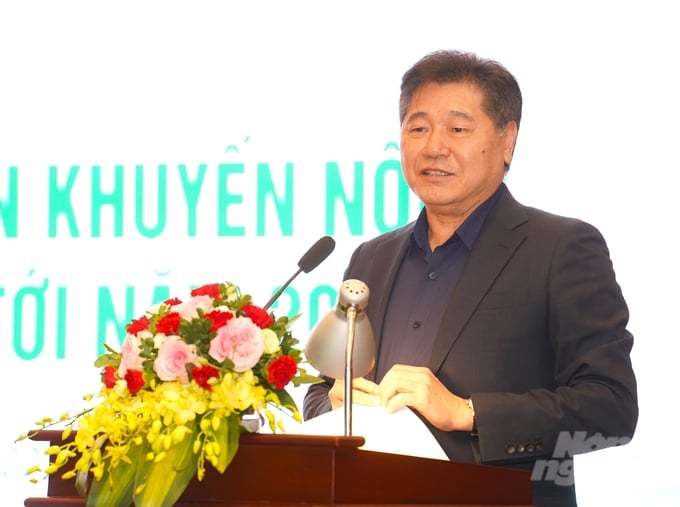
According to Mr. Le Quoc Thanh, Director of the National Agricultural Extension Center, the development and implementation of the agricultural extension strategy for Vietnam until 2030, with a vision towards 2050, are necessary and urgent. Photo: Trung Quan.
However, agricultural extension activities in Vietnam are still faced by numerous challenges, including inconsistent mechanisms and policies, cumbersome administrative procedures. Additionally, the organizational system lacks coherent coordination from the central to local levels; agricultural extension activities focus heavily on technology transfer, and disregard economic factors, market dynamics, value chain linkages, quality management, source traceability, environmental protection, rural livelihood improvement, and farmers' capacity enhancement. Investment resources are limited compared to the position and role of agricultural extension. The capacity of agricultural extension officers is lacking in terms of knowledge, management skills, administrative abilities, and digital transformation skills.
The transfer of new technological advancements and high-tech solutions to help farmers meet market demands, enhance the competitiveness of agricultural products, and develop production towards increasing value-added and sustainability has become an increasingly urgent requirement.
Consequently, the construction and implementation of the development strategy for agricultural extension in Vietnam until 2030, with a vision towards 2050 are highly necessary and urgent to realize the Party and Government's aim of meeting the requirements for the development of modern agriculture, rural areas, and farmers.
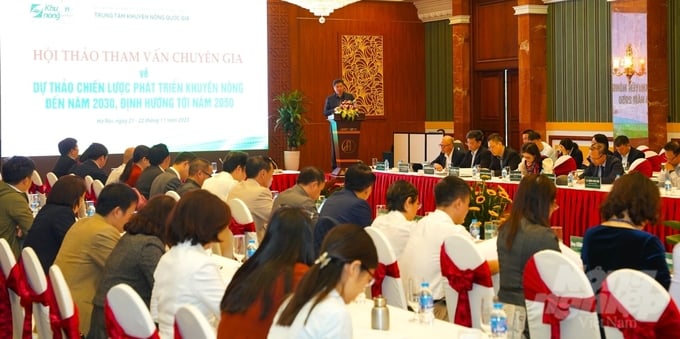
The workshop saw the participation of a diverse group of attendees, including numerous managers, scientists, experts, and businesses. Photo: Trung Quan.
Accordingly, the draft development strategy for agricultural extension until 2030, with a vision towards 2050, sets the goal of building an agricultural extension system from the central to grassroots levels, with a focus on enhancing the knowledge, production capacity, livelihood, and income of farmers; diversifying the content and methods of agricultural extension activities towards socialization and electronic agricultural extension; promoting the transfer and application of science and technology to contribute to fostering a transformation and sustainable development of agriculture, thereby protecting the ecological environment and adapting to climate change.
The development strategy is expected to strengthen and expand the central agricultural extension system to ensure that all regions across the country have organized and dedicated agricultural extension officers. Furthermore, all new rural communes will have effective community-based agricultural extension activities in accordance with the new rural criteria. On the other hand, agricultural extension personnel in businesses, cooperatives, political organizations, social organizations, etc. will also be reinforced.
Vietnam aims to digitize all agricultural extension documents by 2030 and widely disseminate them to farmers. All agricultural extension officers will be trained and developed in terms of expertise and skills. Moreover, stakeholders will focus on improving the efficiency of technology transfer in agricultural extension activities, building model agricultural extension models in association with key products and value chains.
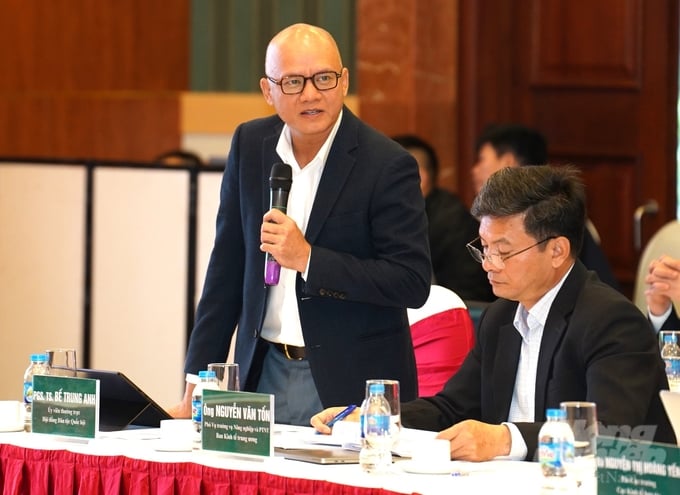
Participants of the workshop made significant contributions and suggestions to enhance the development strategy for agricultural extension. Photo: Trung Quan.
The draft development strategy also identifies eight development directions for agricultural extension activities until 2030, with a vision to 2050, including: Meeting the requirements of improving productivity, quality, and efficiency in agricultural production in accordance with the sector's development strategy; building and developing a comprehensive agricultural extension system; forming and developing digital agricultural extension; developing agricultural extension in specific regions and target groups; developing urban agricultural extension; promoting decentralization in agricultural extension activities; closely coordinating in research, extension, and training; enhancing the institutional framework and policies for agricultural extension.
Participants of the workshop made significant contributions and suggestions to enhance the development strategy for agricultural extension. They emphasized that the strategy is a crucial milestone, providing the Vietnamese agricultural extension system with a spearhead to reposition its role and identity, with the aim of developing towards a knowledge hub, a learning center, and connecting markets for producers.
The content of the development strategy must also highlight the shortcomings and limitations in Vietnam's current agricultural extension system. This task will emphasize the role of the development strategy in providing long-term solutions and a roadmap to overcoming challenges. In addition, the organizational structure of the Vietnamese agricultural extension system must encompass all three fields within Vietnam's agricultural sector: crop production, livestock production and aquaculture.
Regarding the geographical aspect of agricultural extension, it is necessary to design specialized agricultural extension systems which correspond with different regions across the country such as urban areas, deltas, mountains, and border-marine areas. Accordingly, these designs must encompass the organizational structure, policies, institutions, content, and methods of agricultural extension.
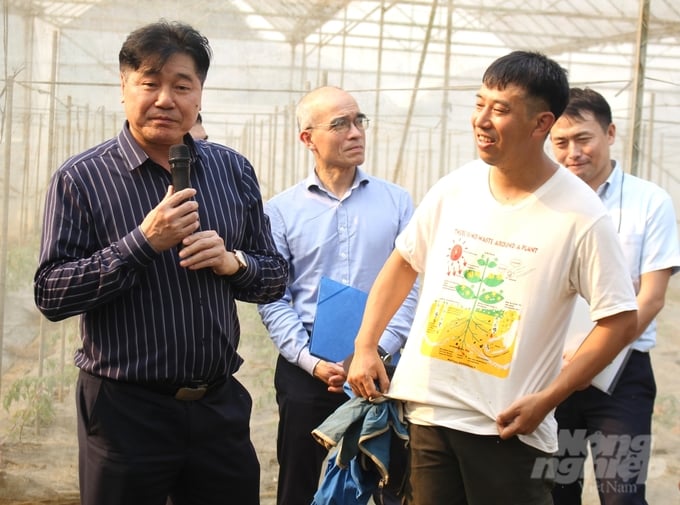
The development strategy for agricultural extension will be a significant milestone, providing a spearhead for the agricultural extension system in Vietnam to reposition its role and identity. Photo: Trung Quan.
Regarding agricultural extension targets, stakeholders are advised to categorize them based on the currently implemented agricultural models, including: small-scale and self-sufficient family production groups; medium and small-scale farm production groups; and agricultural businesses and major farms.
Rregarding the methods of agricultural extension, it is beneficial to explore international experiences in forming specialized agricultural extension groups. For example, countries which are highly affected by climate change have established agricultural extension groups specializing in climate change issues.
With the aim of enhancing the effectiveness of field-specific agricultural extension activities, multiple countries have established additional non-agricultural extension groups specializing in providing consultations to farmers on various areas such as branding building for agricultural products, online sales methods, health, diseases, and nutrition for farmers.
Planning within agricultural extension is a crucial aspect and must be included in the draft, as it will determine the role of agricultural extension activities in the overall development of the agricultural sector. Additionally, detailed annual or multi-year plans will be suitable and adaptable to the unpredictable changes in weather, climate, natural disasters, diseases, politics, etc. Furthermore, focal agricultural extension groups must be identified for each stage in the process to allocate and prioritize resources accordingly.
Translated by Nguyen Hai Long
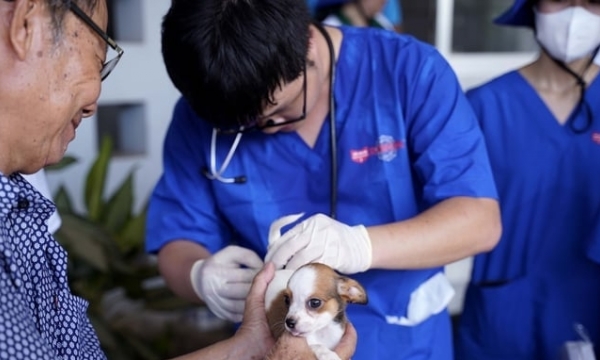
(VAN) Pet owners in Long An province exhibit indifference and a lack of understanding regarding rabies. They maintain the misconception that pet dogs and cats are immune to the disease.

(VAN) The STAR-FARM project is funded by the European Union and implemented in the provinces of Dong Thap, Kien Giang and Tra Vinh, with a total investment of 4.2 million Euro.
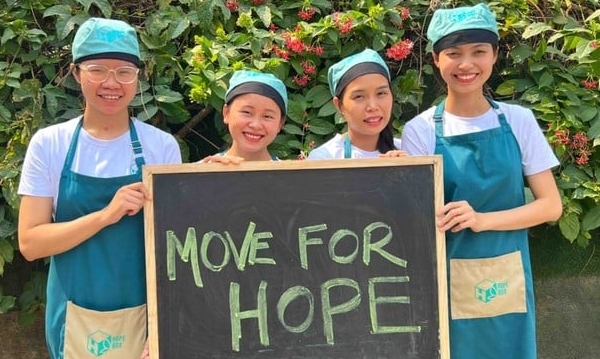
(VAN) The ecosystem and social impact business organizations (SIBs), although still modest in number, is very diverse and dynamic, they have been creating positive changes in many aspects, contributing to building a sustainable future
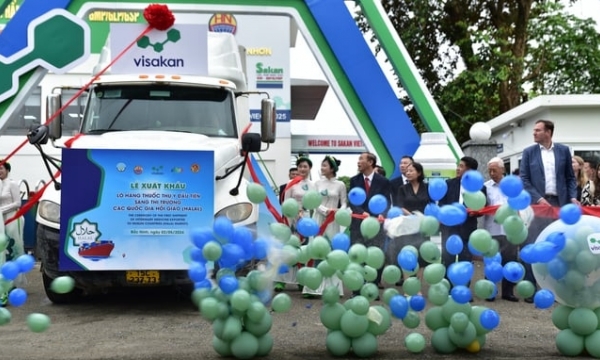
(VAN) Visakan Biotechnology Development Investment Company, a subsidiary of Hung Nhon Group, recently held a ceremony to commemorate its first export shipment of veterinary medicine to the Halal market.
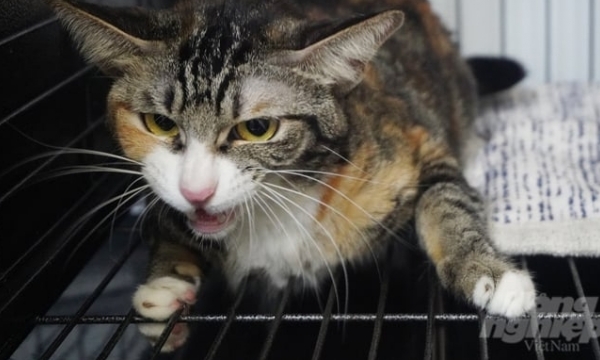
(VAN) If temporary regulations on dog and cat ownership are approved, Ho Chi Minh city will pilot the implementation of microchipping for dogs and cats in several designated areas within the inner city.
/2024/05/02/5303-5730-6-185654_281.jpg)
(VAN) Dr. Pham S, Vice Chairman of Lam Dong Provincial People's Committee: 'Lam Dong has attracted 80 FDI enterprises and 1,550 domestic enterprises to invest in agricultural development, with 150 agricultural cooperatives applying high technology'.
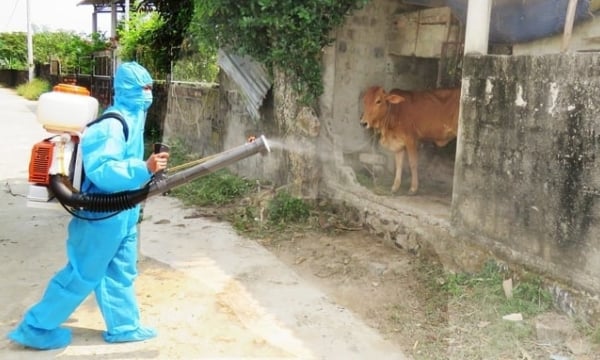
(VAN) An outbreak of Lumpy Skin Disease has occured across four districts in Quang Binh province, prompting local veterinary forces to strengthen prevention efforts.